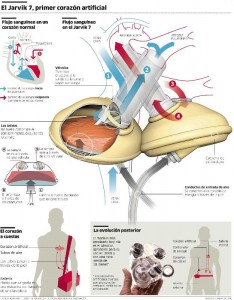Summary
William Schroeder, a previously healthy man with an active lifestyle suffered a massive heart attack that left him with terminal arteriosclerosis. This led to Schroeder becoming the second person ever to receive an artificial heart. Humana hospital agreed to cover the costs of the transplant and even build a special house for Schroeder to stay in after his recovery was complete. The procedure was a success and Schroeder would seemingly live out the rest of his days without much discomfort, but things gradually took a turn for the worst, and Schroeder suffered a total of 3 strokes and eventually passed away after living 620 days with the Jarvik-7 heart in his chest (2).
Case Discussion
The primary moral dilemma discussed in the text is about the allocation of funding in healthcare. Should we spend exorbitant amounts of money on things such as artificial hearts that would only benefit a small percentage of patients, or should this money be better allocated to other programs associated with early detection and prevention that could benefit more people?
While I think this is an interesting issue to consider, I was particularly interested in Schroeder’s individual experience. Namely, I am concerned with whether the principles of nonmaleficence were upheld by Schroeder’s healthcare team. Beauchamp and Childress state these 5 rules about nonmaleficence:
- Do not kill
- Do not cause pain or suffering
- Do not incapacitate
- Do not cause offense
- Do not deprive others of the goods of life
Surely, by giving Schroeder the artificial heart, all of these rules were being upheld. However, after his first stroke, Schroeder was left with severely impaired speech and memory problems. The patients wife stated:
“I see it as more of a research experiment. The longer he lives, the more information [doctors] will get. Only for us it’s so hard sometimes.”
This brings up an interesting situation to consider. While doctors are upholding the first and last of the moral rules stated above, some might consider keeping Schroeder alive on the artificial heart as violating the second rule. We are given little insight into Schroeder’s mental state, but we are told that Barney Clark, the first to receive an artificial heart, complained to psychiatrists that he wanted to die on several occasions.
While I do not think it is any of the doctors intent to cause pain or suffering, one must think about who is benefitting more from the artificial heart, the doctors or the patient? The data being gathered from Schroeder’s experience could be invaluable to improving the procedure for future recipients of artificial hearts, but it seems that he is in considerable suffering without a hopeful chance for living a normal life. It would be interesting to read what was in the extensive consent form that Schroeder and his wife agreed to before undergoing the procedure. Furthermore, I have been unsuccessful in finding any studies that assess mental health of artificial heart recipients.
References
1. Beauchamp, Tom L., and James F. Childress. “Nonmaleficence” Principles of Biomedical Ethics. New York, NY: Oxford UP, 2001. 150-193. Print.
2. Thomas, John E., and Wilfrid J. Waluchow. Well and Good: A Case Study Approach to Health Care Ethics. 4th ed. Toronto: Broadview, 2014. Print.
